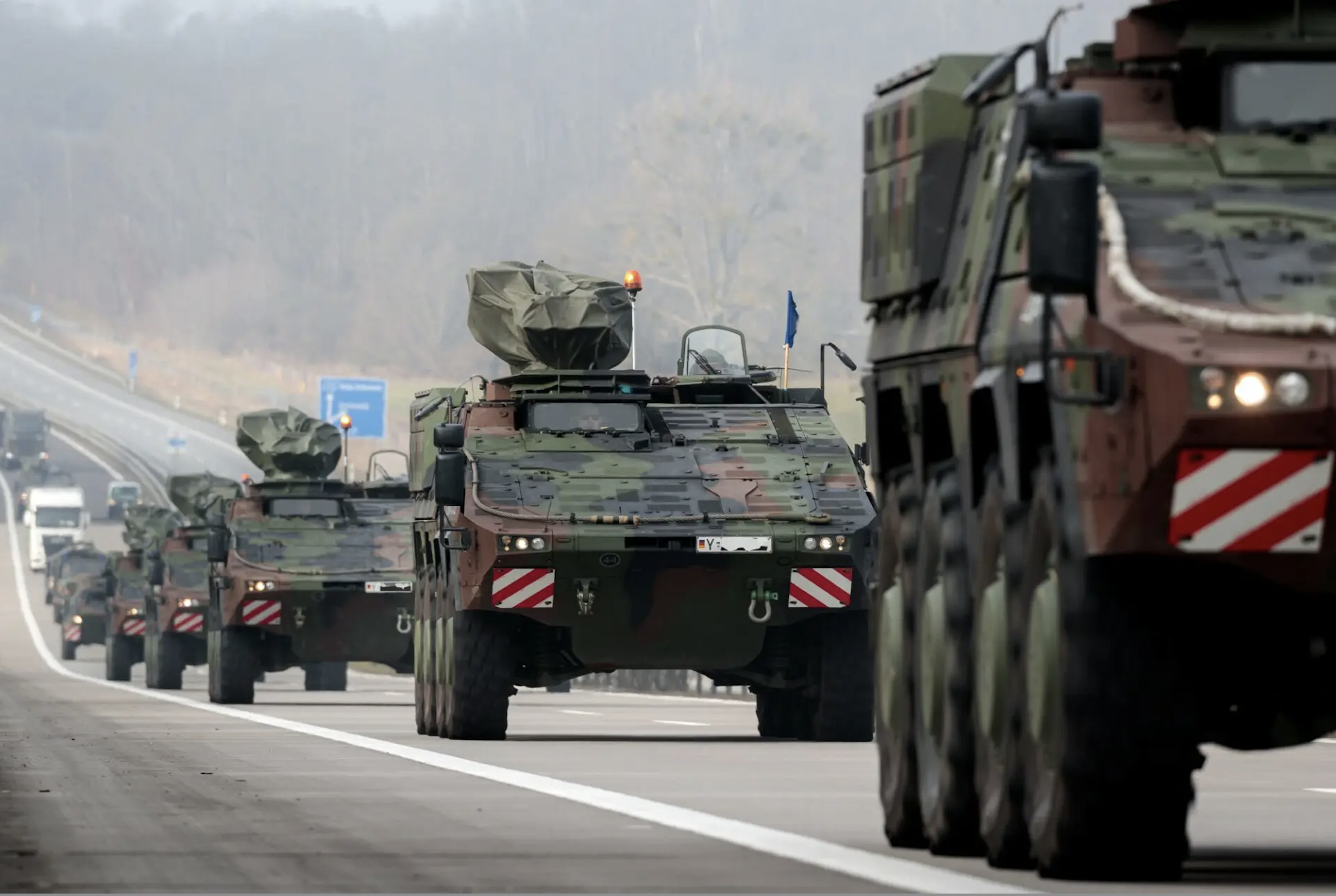Get the weekly SPARTANAT newsletter.
Your bonus: the free E-Book from SPARTANAT.

The joy of driving on the Autobahn
The Bundeswehr and the Autobahn GmbH of the federal government have reached a nationwide uniform agreement for the execution of oversized and heavy transport as well as closed convoy travel on highways. Michael Güntner, Chairman of the Management Board of the Autobahn GmbH of the federal government, Lieutenant General André Bodemann, Deputy Commander of the Operational Command of the Bundeswehr, and the President of the Federal Office for Infrastructure, Environmental Protection, and Services of the Bundeswehr, Roland Börger, signed the document on Monday in Berlin.
The new regulation replaces the previously inconsistent agreements of the individual federal states and creates clear, uniform framework conditions for military transports in the German highway network. The "Hub Germany" is thus strengthened to meet NATO's requirements for troop and material movements through our federal territory. The agreement is another step towards making Germany resilient and defensible.
Strengthening the Readiness of the Bundeswehr
Güntner commented on the signing: “With this agreement, we as Autobahn GmbH are making an important contribution to the readiness of the Bundeswehr in light of ever-growing threats. Together we are creating the conditions for military movements to occur quickly, safely, and without bureaucratic hurdles over the highway network. This strengthens defense and alliance capabilities. The close cooperation with the Bundeswehr is an expression of our responsibility for overall state security provision.”
“The cooperation is crucial for us in implementing the operational plan for Germany,” says Lieutenant General Bodemann. "Military relocations must be carried out quickly, effectively, and as simply as possible.” The Operational Command of the Bundeswehr is responsible for the military component of Germany's overall defense with the operational plan for Germany. The Federal Republic, due to its geographical location in the heart of Europe, is a hub. The Bundeswehr plays a central role in supporting allied forces on German territory. As a host nation, it reliably supports relocations for participation in exercises, operational and alliance commitments, reinforcement at the NATO eastern flank, and support for Ukraine. Close civil-military cooperation is necessary to ensure military mobility in the German highway network.
Efficiency and Safety of Military Transports
“I am pleased to sign this agreement today, which is significant for national and alliance defense. In its drafting, the various players have once again demonstrated effective civil-military cooperation. This means a significant increase in efficiency for both the troops and the civil Bundeswehr administration in realizing the hub function,” emphasizes Börger.
The agreement was drafted based on a proposal from the Federal Highway Research Institute and regulates road usage in accordance with the Road Traffic Regulations. It applies to all highways in Germany and also includes transports by companies commissioned by the Bundeswehr, provided that they operate under sovereign authority.
This agreement makes an important contribution to the efficiency and safety of military transports on German highways while also further strengthening cooperation between civil and military institutions.
SPARTANAT is the online magazine for Military News, Tactical Life, Gear & Reviews.
Send us your news: [email protected]
Ad
similar
Get the weekly SPARTANAT newsletter.
Your bonus: the free E-Book from SPARTANAT.


